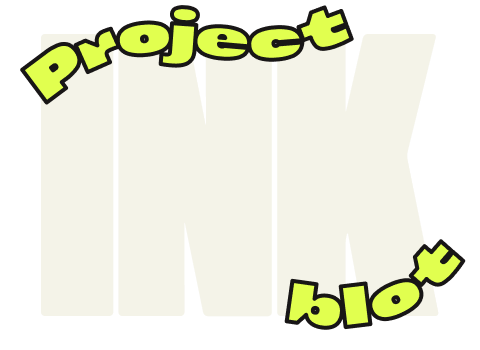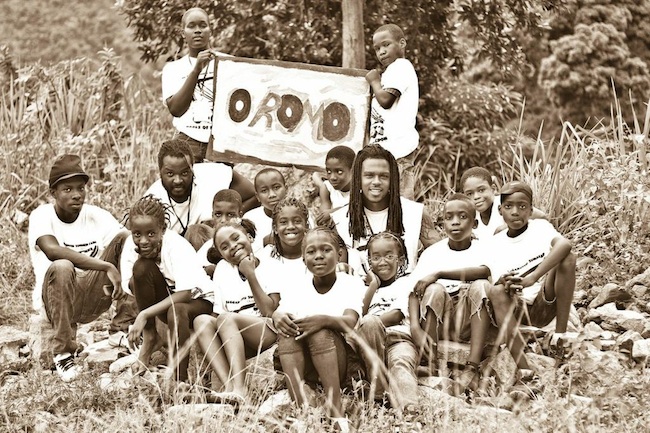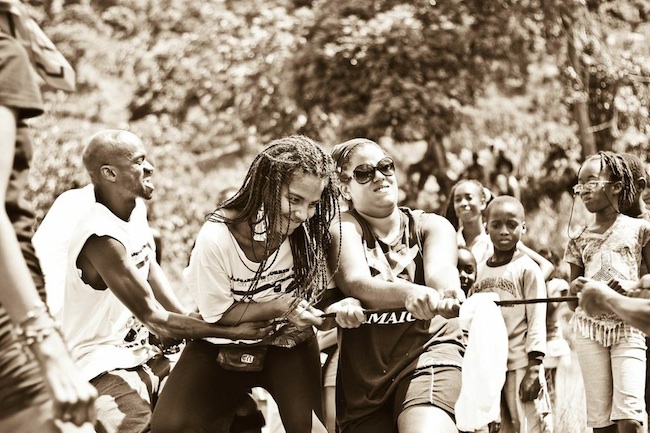Zebi Williams' Lil Raggamuffins
When I think of my childhood, trees and grass aren't the first thing that come to mind. Growing up on the Lower East Side of New York City, my Summertime childhood memories tend to invoke the stuff of urban 80’s movies including, but not limited to: the jingle of the impending arrival of the ice-cream truck, the gorgeous smell of spoiled garbage and hot pavement, Big Daddy Kane blasting out of boom boxes, my brother and I playing exhilarating games of freeze tag with the neighborhood kids, catching fireflies and examining their florescent glow, and of course, mothers yelling out of their windows, “time to come inside"! - their shouts echoing off massively tall buildings.
As Zebi Williams, founder of the Lil Raggamuffin Summer Camp in the Blue Mountains of Jamaica says, “ [in Jamaica] the earth is alive around you. In the city, the earth is not alive around you. The people are alive around you.” Zebi's childhood involved more of Mother Nature than mine and her desire to return to her beloved hometown spawned by memories of her idyllic childhood, resulted in the creation of a summer youth camp. At only 19 years old, and as a new mother, the Jamaican/Washington DC native started the Lil Raggamuffin Summer Camp ten years ago as a way to create a space for neighborhood children to learn about the arts and entrepreneurship in a fun, creative, open environment that teaches self-development, self-love, and the power of community. The humble and brilliant Zebi spoke with Project Inkblot about the effect of our environment on our creativity, her incredible volunteers/teaching artists, her vision for the camp, and why following your dreams as a parent is just as important for your children as it is for your soul.
How did the idea for the Lil Raggamuffin Summer Camp start?
It started because I really wanted to go back to Jamaica. I was born in DC. My dad is Jamaican and my mom is American. I’m multicultural and biracial. When I was in third grade I moved back to Jamaica for a time and that’s the part of my life I remembered I love the most. From 8 to 13 years old I lived in this village up in the Blue Mountains. We had no paved roads, no light…and I lived in a house with 20 of my cousins and most of that time was spent outside. It was a small house, two bedrooms. I loved all of the imaginative play. We’d roast cashews, make our own fires, and I just loved it.
When I came back to America, I felt homesick. I always knew I would go back to Jamaica and that that would be a big part of life. In college, I studied cultural anthropology with a focus on sustainable development for the Caribbean. I decided during my sophomore year that I wanted to go back to Jamaica and volunteer but I couldn’t find any volunteer opportunities. My mom was like, ‘well why don’t you start your own thing’? I always loved summer camps because I had my time in Jamaica where I was always in nature and then I had that time in America where I would be in summer camps. I felt like that was something I could do. I could create this summertime experience for kids in my hometown. I was 19 when I started the camp and I was feeling rebellious and going through my existential crisis - reading Malcolm X and watching Life and Debt. I thought, I need to be out in the world doing something.
“There’s a line in the film that always stuck with me. It’s something like, ‘if you’re a tourist, and you come to Jamaica, you can get a break from your regular life but the envy from the locals is that they don’t get a break’. The reality is that wherever you’re from, life isn’t always easy but we get a chance to have a break and a lot of people in Jamaica, they don’t get that break.”
What’s Life and Debt?
Oh, you have to see it. It changed my life. It’s a movie about the IMF and the global economy and how the economy in Jamaica is basically owned by the IMF. Tourists come to Jamaica and all they see is this glossy image like, ‘yeah mon, no problem’. There’s a line in the film that always stuck with me. It's something like, ‘if you’re a tourist, and you come to Jamaica, you can get a break from your regular life but the envy from the locals is that they don’t get a break’. The reality is that wherever you’re from, life isn’t always easy but we get a chance to have a break and a lot of people in Jamaica, they don’t get that break.
From that film, I saw all of these big problems that were systematic and big and I thought, I don’t know how to affect those problems but what I can do, is I can offer a break. I can offer a time for the kids to step away and just be kids and have that same enjoyment. That’s basically what the camp is for them, a week vacation. I feel like that will have an affect on their development and their well-being.
How many kids do you accept into the program?
It’s in my hometown, where I grew up. We have 125 children so basically all of the children come. We’re basically raising a whole generation of children. What’s special about this is that everyone is getting the same education.
How did the vision for the camp develop?
The first year I went down, there was no real vision. I took a break and I came back five years later and at that time I had more of a focus. I knew the focus would be the arts because I knew all of these artists in Brooklyn and we really wanted to create a movement but I’m also an entrepreneur so it was like, arts and entrepreneurship. We have children from the age of 5 – 17. When they graduate from the program they become junior counselors and they go through a rite of passage. The oldest kids right now are 19 years old.
We place them in different African named tribes. A lot of Jamaicans don’t love their blackness or their Africaness. They’ll bleach their skin or think black is ugly or that being African is negative so I want them to know more about what African is. They get to know parts of the culture and it’s about loving yourself and all of the different layers of what that is; loving your history and where you came from, loving your flaws, and loving your talents. We have the tribe time when the kids are with counselors who are doing self-development activities with them and also taking them on hikes, going to the river, and having mentor time with them. They also get to go to art classes. The younger ones get to test out different art subjects. Maybe today they’ll do drumming and tomorrow they’ll take dancing. If you’re not exposed you may think well, I only like doing this because you haven’t tried enough things, you don’t know what your talent is. So we give them an opportunity to expand their horizons.
That sounds like such gratifying work. Is there a particular example that sticks out with a student?
There is this area in the community where people are kind of shunned. The community wouldn’t touch the kids from that community, they wouldn’t hold their hands, the kids weren’t really going to school. But with the camp we brought everyone together and we were like, you’re going to treat everyone with respect. There was this one girl who was from that community who was an amazing writer. She was ten years old and during lunch one day she came to me and said, ‘Zebi, I want to show you my poetry’. She was really quiet and the kids were always picking on her and so she felt down about herself.
“This little shy girl broke out into this big character. She just blossomed in that space. The other kids heard her performing and she was able to share that talent with us...all the kids know her as this amazing poet, she’s not shunned anymore. The kids have so much hidden talent and now there is a platform for them to show that talent. So much gets hidden because they learn to hide themselves as they grow up.”
She read her poems to me. Her poetry was amazing. This little shy girl broke out into this big character. She just blossomed in that space. The other kids heard her performing and she was able to share that talent with us and we were able to show her that it was an amazing talent, by being her audience. We had a talent show that year and she got up on the stage and the adults got to see her perform. Now she’s our poet laureate. She’s written more books of poetry, she’s writing plays, she's writing songs. All the kids know her as this amazing poet, she’s not shunned anymore. She’s going to a boarding school on a scholarship. And the adults were like ‘whoa’ they never got to see how talented their children are. The kids have so much hidden talent and now there is a platform for them to show that talent. So much gets hidden because they learn to hide themselves as they grow up.
Why do you think that is?
So many reasons. I’m always having conversations about this. Why are we hiding our lights as adults? Why are we hiding our lights as children? Even this little girl, I see so much of myself in her. She’s at this stage where she knows herself but she’s not able to experience herself and I feel that same way. So sometimes it’s me feeling like I’m not a leader but knowing that I am a leader. You know you have a bright light but you’re not always able to experience your bright light. We have to learn to surround ourselves with people who see us. I’m grateful that as an adult I’m able to be around people who see me and want me to be myself because they believe in themselves.
“When it came time for me to actualize my dreams, a lot of my family was like, you need to just focus on her. But I’m not here to live just for her. I have a purpose as well. It doesn’t feel right to just throw that away to be a mother, solely. What kind of lesson is that teaching her? Who knows when she will have a child and then she has to forget who she was supposed to be?”
You have a ten-year old daughter, Zia. How does being a mother affect your work as an entrepreneur and your vision for the camp?
I’m learning the balance of being a mother and following my dreams but also respecting her vision of what she wants in her life. What’s great is that she’s a really bright, communicative, creative child so she loves it. She gets a lot of one-on-one attention from our teachers and volunteers so they’re like her aunts and uncles. She’s always raising her hand in meetings and contributing her viewpoint as a child. I had her so young and I was really career driven and have been since I was young. When it came time for me to actualize my dreams, a lot of my family was like you need to just focus on her but I’m not here to live just for her. I have a purpose as well. It doesn’t feel right to just throw that away to be a mother, solely. What kind of lesson is that teaching her? Who knows when she will have a child and then she has to forget who she was supposed to be? That’s a conflict that happens within my family and with the elders around me. Wanting me to be solely present to being her mother.
Being an entrepreneur and creating this program takes a lot of my time. It’s long hours and she has to be at the meetings and it’s a commitment that I’ve made. Maybe she’d rather be at the park playing with her friends or at home and she has to be at this meeting with me. But it’s important that she sees me following my dreams. It’s important for our future relationship because our relationship is going to be very long. When she wants to be her own woman, I don’t want to be there like wait - you’re all I have. I want there to be a respectful and balanced relationship between the both of us. I see that as the long-term vision even though right now it can be challenging. She and I have a great relationship and she sees herself as the person who will be taking over the camp when she gets older and being the future director [laughs]. She looks up to me and that feels really important to me. And I look up to her! She’s around women who are transparent in their own development. She sees our struggles, she sees what we go through, and it’s not perfect. It’s very real. She’s surrounded by so many confident women so I feel good about that.
It sounds like you’ve created many lasting relationships with the volunteers. What it is about Jamaica, and the camp specifically that attracts so many teaching artists?
I think environments speak to who we are. There are environments that we’re made to be in so when you go back, it resonates with who you are. It’s like we’re a tribe of people who are not in our home. And then you gather and you’re like, ‘oh this is where I am supposed to be’. That happens a lot with my volunteers. They find their home in that space. It’s cool because I have a lot of volunteers who are from New York. They have such a desire to be in the county. A lot of my volunteers have been coming for five, six years because it becomes their community. They can really feel like they’re connecting to the environment and the people they want to connect to.
A lot of them are bringing their children and so their children now have a second home. I really enjoy seeing my friends’ children come down and seeing that they can have what I had. I had America but I also had this safe special place in Jamaica that kept me innocent and connected and rooted.
You speak about this sense of connection. What do you think they’re connecting to?
I hear over and over again that people feel like they’ve grown after their trip to Jamaica, like they have had an accelerated growth spurt. There’s an aliveness to the environment. At night, everything is talking and moving. The trees are singing and the stars are bright and you’re in this living organism. The earth is alive around you. In the city, the earth is not alive around you. The people are alive around you. You really slow down and you’re so observant. The volunteers go back to New York regenerated and able to give.
“You really have to be present when you’re there. When I’m in New York I’m in planning mode a lot of the time. I’m living in the future and getting things done. When I’m at the camp, there is such a demand for me to be present. There’s the children, the unpredictability of the environment, and the lifestyle...you’re not thinking about tomorrow, you’re thinking about the here and now even if it’s just those seven days.”


